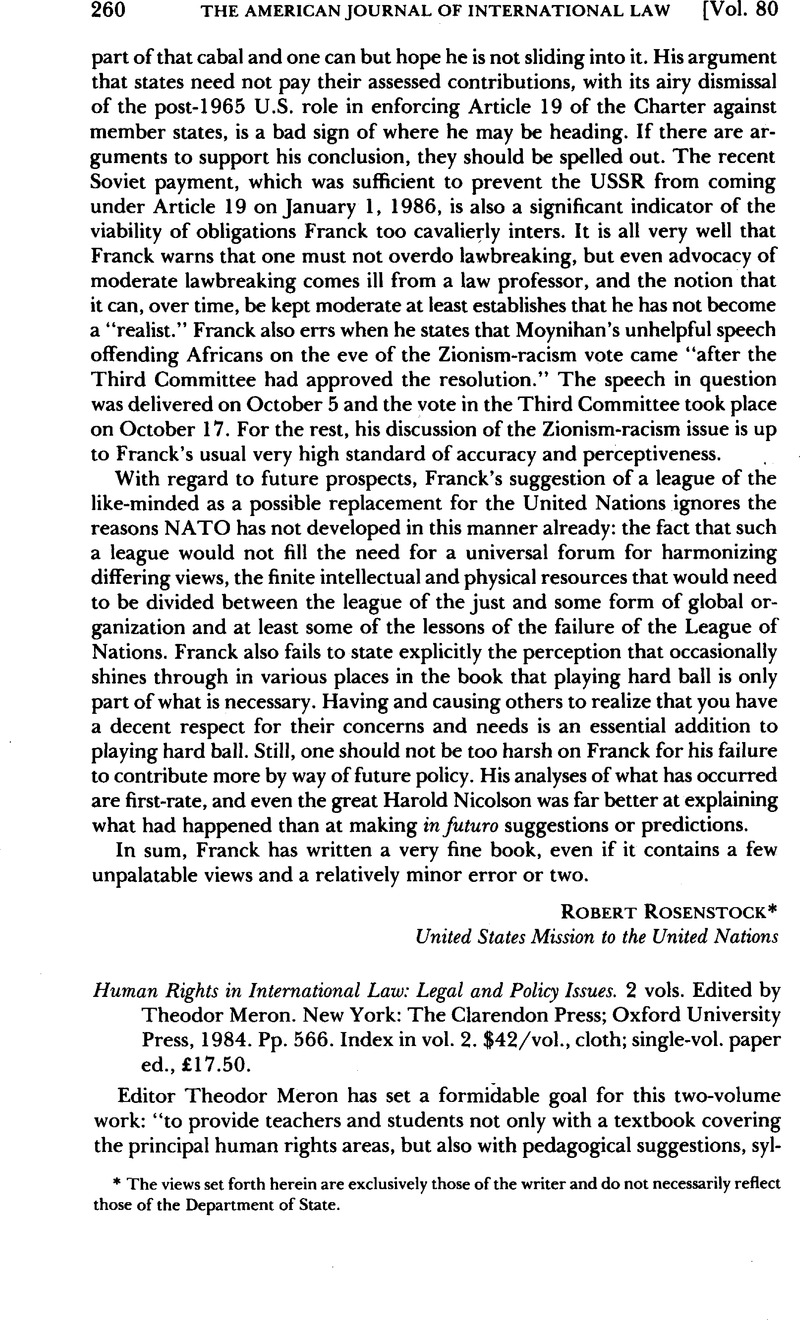No CrossRef data available.
Published online by Cambridge University Press: 27 February 2017

1 E.g., the chapters by Lillich, Trubek and Higgins.
2 For example, it is certainly an overstatement that “[t]he dilemma is that the full achievement of those economic and social rights [in the Universal Declaration] entails a loss of individual liberties which is unacceptable to the western liberal democracies” (p. 497). As is recognized by the author, Protocol No. 2 to the European Convention proclaims at least the right to education, and the impact of the European Social Charter on economic rights in Europe also should be noted. See generally D. Harris, The European Social Charter (1984).
3 The International Bill of Rights: The Covenant on Civil and Political Rights (L. Henkined. 1981).
4 P. Sieghart, The International Law of Human Rights (1983).
5 International Human Rights: Problems of Law and Policy (R. Lillich & F. Newman eds. 1979).
6 Cf., e.g., the work of the Working Group on Indigenous Populations of the UN Sub-Commission on Prevention of Discrimination and Protection of Minorities (whose most recent report is contained in UN Doc. E/CN.4/Sub.2/1984/22); and the revised draft declaration on the rights of minorities, UN Doc. E/CN.4/Sub.2/L.734, and the continuing work of the relevant working group of the Commission on Human Rights (whose most recent report is contained in UN Doc. E/CN.4/1985/65).
7 For example, the right to a fair trial or even the prohibition against torture requires far more for its implementation than “passing laws and revising constitutions” (p. 211), and it is difficult to see how distinguishing resources needed to maintain a judicial system or effective law enforcement from those required to institute an educational system advances our understanding of the problem.
8 Of the 79 state parties to the ECOSOC Covenant as of September 1983, only Honduras, the Philippines and the Solomon Islands had not also ratified the Covenant on Civil and Political Rights; all parties to the latter also are party to the former. Human Rights International Instruments, UN Doc. ST/HR/4/Rev.5 (1983).
9 This point seems to be subsequently conceded in the more specific discussions of the ILO and WHO: “[T]he observations [of the ILO on state reports] fall short of what one might hope for, given the central role the ILO necessarily must play under the Economic Covenant” (p. 241). “[T]he WHO has not sought to use these principles [of Primary Health Care] as standards to measure country progress under the Economic Covenant” (p. 244). Cf. Fischer, International Reporting Procedures, in Guide to International Human Rights Practice 165, 176 (H. Hannum ed. 1984): “[I]t is perhaps not surprising that they [the specialized agencies] have not yet contributed to implementation of the [ECOSOC] Covenant’s reporting system. Officials of the agencies know there would be strong resistance if they tried to force the issue.”
10 ECOSOC Covenant, Art. 18 (emphasis added).